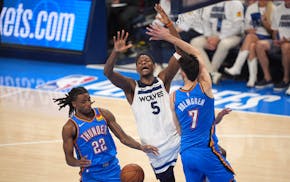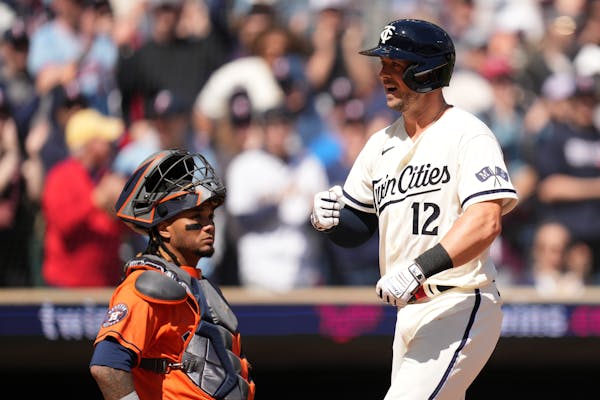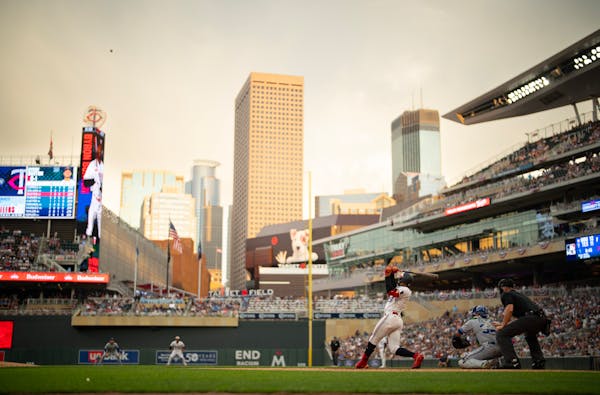On June 7, Max Kepler's career bottomed out.
In the midst of a 2 ½-year slump that threatened to become his new normal, the Twins right fielder was batting below .200 when he made an inexcusable baserunning mistake.
Trailing Tampa Bay 1-0 in the ninth inning at Tropicana Field, the Twins had Kepler on first when Michael A. Taylor stole third. The Rays weren't holding Kepler, so he could have easily followed Taylor and stole second, and had he done so, he would have scored the go-ahead run on Royce Lewis' subsequent single.
Instead, he stood on first, appearing lost in his own thoughts, and the Twins lost their fourth game of five consecutive losses to fall below .500 for the first time this season.
Kepler wasn't hitting, he wasn't paying much attention, and the Twins system was filled with promising corner outfielders who could have easily replaced him. It wasn't hard to find members of the Twins organization who were ready to trade Kepler.
Such a trade would have made sense. The Twins would have saved money, gained a prospect and opened a position for one of their promising sluggers.
At his lowest point, Kepler had one important person in his corner — Twins President of Baseball Operations Derek Falvey.
Falvey decided to stick with Kepler, and Kepler has justified his faith, becoming one of the main reasons the Twins surged from below .500 in June to division champion in mid-September.
After June 10, Kepler hit .283 with a .881 OPS. After June 30, he hit .291 with an .887 OPS. After the All-Star break, he hit .296 with a .902 OPS.
Even with his early-summer slump included, Kepler is having the second-best season of his career.
Why did Falvey stick with him?
"Let's take 2019 out of the conversation," Falvey said of Kepler's career year. "Now, that's unfair, to take someone's best year away, but let's look at what Max has done since 2020, even as his offensive numbers haven't matched his 2019 output.
"He has two attributes that are easy to overlook in the everyday soup of emotions, especially when a player or a team are struggling. He 'posts.' He plays. I believe he's played in more games than any other Twin since we've been here. He has a different personality, and he's not a rah-rah guy, so it may not seem like he's the guy pushing to play every day, but in reality, he plays more than anyone else, and that's valuable.
"The other thing that is easy to overlook is his fielding. When we look at the metrics about what balls get caught, Max fits exceptionally well in right field. I think until he's missing from the lineup for a few days, you don't really appreciate how many balls he gets to, because he runs through them and he makes those difficult catches look so easy.
"Maybe 10 years from now we'll hear this talked about more on broadcasts: catch probability. How likely is it that the average right fielder catches that ball? Max always plays right field very well, and that has value.
"In terms of his offense, he's always hit the ball hard and he's always had a relatively patient approach. He can hit home runs and he can draw walks. I think the overall package of the player was not as appreciated as maybe it should have been."
Kepler is one of the odder baseball personalities you'll encounter. He speaks in a monotone, and his expression usually sends the message that "I'm thinking deep thoughts right now but I will never share them with you."
He's also a rare athlete — tall, lean and powerful, seemingly talented enough to be called a five-tool player, meaning he can hit for average, hit for power, throw, run and field.
For some unknown reason, Kepler performed like a below-average corner outfielder, offensively, from the beginning of the 2021 season through June 9, 2023, when he was hitting .188.
Falvey made the right call on Kepler, who will be blanketing right field and batting in the middle of the lineup when the Twins return to the playoffs next week.

Souhan: Anxiety and depression in the NFL helped inspire Lindsey Young's children's book
Souhan: For Lynx star Napheesa Collier, 'Phee' is just fine
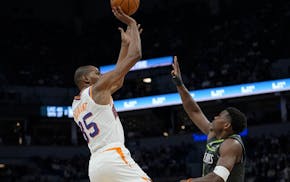
Souhan: Will the Wolves trade for Kevin Durant? Should they?
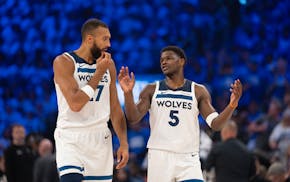
Souhan: If Edwards is a franchise player, he needs to act and play like it
